SUMMARY
This is AI generated summarization, which may have errors. For context, always refer to the full article.
![[ANALYSIS] PH must worry about getting embroiled in Taiwan-China conflict](https://www.rappler.com/tachyon/2023/04/tl-taiwan-china-1.jpg)
In response to Taiwan President Tsai Ing-wen’s recent international trip to the United States, Belize, and Guatemala, the Chinese military enacted a number of retaliatory military measures to punish Taipei. As a part of her trip, Tsai met with US Speaker of the House Kevin McCarthy and a bipartisan group of House members during a layover in California, causing Beijing to increase its military pushback.
While all of the actions — including missiles tests, simulated strikes, combat readiness patrols, sending over 100 military aircraft across the median line of the Taiwan Strait, and a patrol and inspection operation — are aimed at intimating the Tsai administration and people of Taiwan, they are also a stark warning to Taiwan’s neighbors about the threat of Chinese escalation around Taiwan.
The Philippines is one such country that should monitor these developments closely, especially since a Chinese Shandong aircraft carrier strike group passed through the Bashi Channel on the same day as Tsai met with McCarthy to participate in the Joint Sword drills to Taiwan’s east.
In response, the US Navy sent the Nimitz Carrier Strike Group to the Philippine Sea to monitor the situation.
The Philippines must worry about getting embroiled in a conflict due to its geographic proximity to Taiwan, while, in the face of new coercive operations, Taipei can actually learn some lessons from the Philippines in its handling of delicate South China Sea issues, such as mini-blockades of certain regional features and the boarding of Filipino civilian vessels. Both have also grown to appreciate the limited, but important, support of the United States in pushing back against Beijing’s military pressure.
The Bashi Channel divides southern Taiwan from the northern Philippines, making it an important waterway for both civilian and military sea travel. In response to then House Speaker Nancy Pelosi’s visit to Taiwan in August 2022, the Chinese military conducted live-fire joint sea-air exercises around Taiwan, including one area that overlapped in the Philippines’ exclusive economic zone and near Batanes. While the 2023 redux does not overlap with the EEZ, the passage of the Shandong is a stark reminder to Manila that it will not be able to avoid involvement a Taiwan-related crisis that goes “hot.”
Since August 2022, the Marcos administration and President Marcos himself have made public statements recognizing the vulnerabilities of the Philippines in these sorts of situations.
In February 2023, Marcos acknowledged the spillover effects of a Taiwan conflict for the Philippines: “If there is conflict and an outright force being used, or there’s actual fighting going on, it seems impossible to me that the Philippines will not be involved in one way or another.” And while these escalatory actions by Beijing have received ample attention from the international media, the Philippines is no stranger to Chinese naval aggression.
The People’s Liberation Army Navy (PLAN) regularly blockades parts of the South China Sea to prevent Filipino civilian and navy access. The PLAN has even boarded and inspected Filipino civilian ships — a point that Marcos made in in Davos at the World Economic Forum in January 2023. “The number of incidents is increasing…when they blockade areas or sometimes intercept a Philippine vessel, both coastguard and civilian…we must respond somehow to these incidents.”
While such actions are a regular part of the ongoing dispute between China and other regional claimants, such as the Philippines, the announcement by Beijing of the patrol and inspection operation is a disturbing development. Taipei said that it would not comply with Chinese naval vessels and instructed civilian vessels not to comply and instead contact Taiwan’s coast guard. There are no current public reports of a Chinese naval vessel boarding and inspecting a Taiwanese ship.
The area of this operation was limited to the northern Taiwan Strait, but it now sets a precedent for an eventual expansion if Beijing so chooses — and such an expansion could extend to the Bashi Channel and impact Filipino fishermen.
Since Beijing lays claim to Taiwan and its territories, including “ownership” of the Taiwan Strait, it will likely utilize its South China Sea playbook to enact further pressure on Taiwan. In this respect, Taipei has much to learn from the Philippines and its responses to Chinese aggression. Putting aside the fact that Taipei sided with Beijing in the 2013-16 South China Sea Arbitration against Manila, Taiwan should begin to study how Beijing was able to bully the Philippines in the region to achieve near-total dominance.
Taiwan faces similar disadvantages in the Taiwan Strait as the Philippines does in the South China Sea, primarily the immense power asymmetry between the two navies. The primary difference between the two situations is that Taipei must tow a much more delicate line as pushback has the potential to start a large-scale conflict. And importantly, Manila has the security of being a US security treat ally.
As cross-Strait relations continue to deteriorate, Manila must keep a watchful eye on its northern border as it will certainly be a hot spot in any future flare-up. For its part, the Marcos administration has seemingly taken the threat seriously and is working to shore up its defenses. In early April, Washington and Manila announced the expansion of Enhanced Defense Cooperation Agreement sites to include an additional four, including one at Naval Base Camilo Osias in Santa Ana, Cagayan, close to the Bashi Channel.
Once the site is fully developed, it will likely serve as the frontline of a future American-Philippine response to aggression in the region. This site is a sign that Manila and Washington have awoken to the growing importance that the Philippines will play in a potential crisis over Taiwan. – Rappler.com
Thomas J. Shattuck is the global order program manager at the University of Pennsylvania’s Perry World House, and a member of Foreign Policy for America’s NextGen Foreign Policy Initiative and the Pacific Forum’s Young Leaders Program.
Add a comment
How does this make you feel?
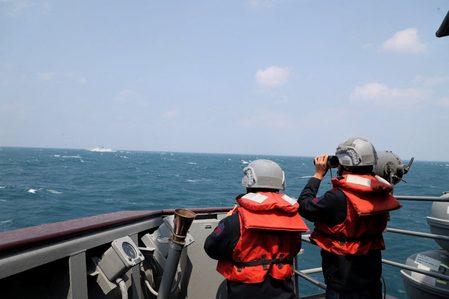
![[ANALYSIS] How the Philippines should pursue relations with Taiwan under William Lai](https://www.rappler.com/tachyon/2023/10/william-lai_TAIWAN-POLITICS.jpg?resize=257%2C257&crop=0px%2C0px%2C1467px%2C1467px)
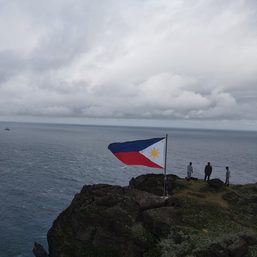
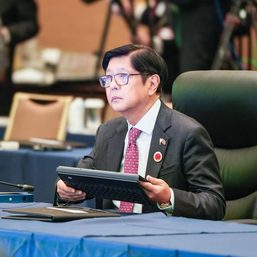

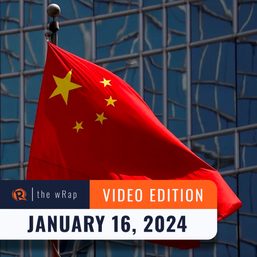

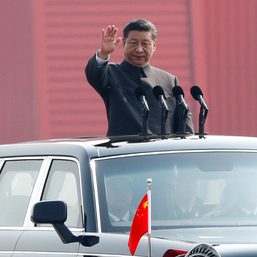
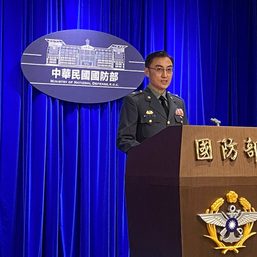
![[OPINION] Expectations for Philippines-US-Japan trilateral cooperation: A view from Japan](https://www.rappler.com/tachyon/2024/04/tl-ph-usa-jp-cooperation.jpg?resize=257%2C257&crop=447px%2C0px%2C1080px%2C1080px)
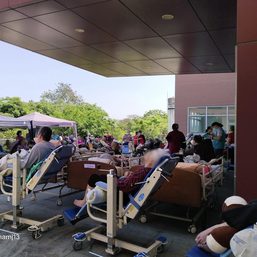
There are no comments yet. Add your comment to start the conversation.